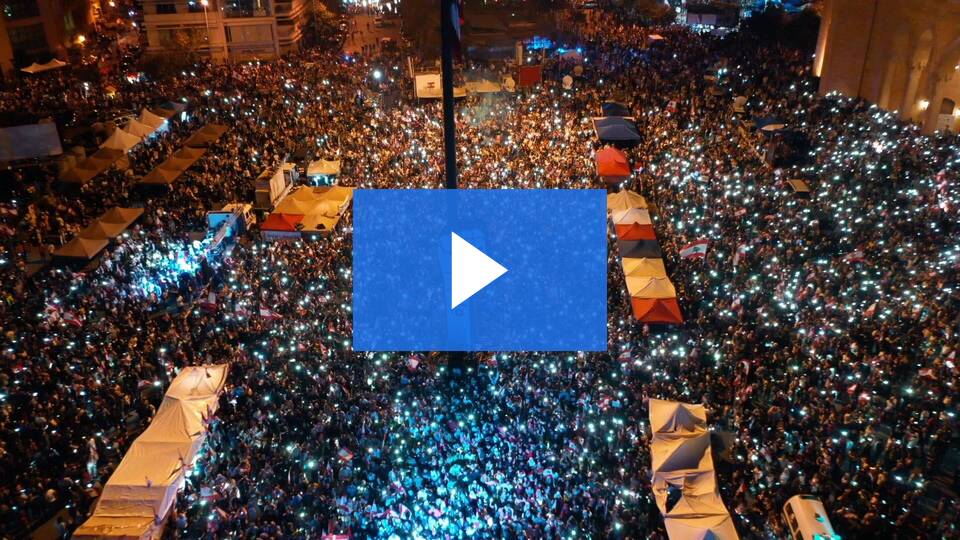
Queer and Trans People Reclaim
their Power in Lebanon’s Revolution
By Rasha Younes
Videos by Amanda Bailly
https://www.hrw.org/video-photos/interactive/2020/05/07/if-not-now-when-queer-and-trans-people-reclaim-their-power

At the main protest site in downtown Beirut, a unified plea for change carries the crowd forward.
“We want to topple sectarianism; it must go!” a queer woman chants, as the crowd repeats the refrain.
“We want to topple patriarchy; it must go!” she says, and the crowd roars its approval.
“We want to topple homophobia; it must go!” she’s screaming now, and voices of the protesters reverberate, a mixture of cheering and emphatic agreement.
Topple “Transphobia, classism, racism…’’ the chant continues, as thousands of protesters repeat.
To the right of the crowd, the phrase ‘faggot is not an insult’ is etched on the wall. To the left, graffiti declaring ‘homophobia is a crime’ is spray-painted above the slogan ‘down with sectarianism.’ Words and images celebrating sexual and gender diversity fill the walls of central Beirut.
The October 17 uprising in Lebanon - fueled by rampant corruption and the country’s worst economic crisis since the end of the civil war in 1990 - has sparked a newfound collective consciousness where the rights and identities of marginalized groups are part and parcel of the protests. Lesbian, gay, bisexual, and transgender (LGBT) rights, once considered taboo and excluded from the political terrain, have entered the mainstream as a pillar of resistance for the first time. They have become part of Lebanon’s revolution.

1 Coexistence Horizontal English

Marwan Tahtah for Human Rights Watch
https://www.hrw.org/sites/default/files/supporting_resources/2019_08_lebanonresponse_lgbt.pdf
Indeed, there should be no going back – but even if Lebanon continues to deny LGBT people their basic human rights and chooses to silence their voice in public discourse, the streets and walls of Beirut will remember.
“Right before the revolution, I had tweeted that I am part of a generation that has nothing to wake up for and no one to go home to,” says Malak, 26. “On October 17, I felt for the first time that we had something to look forward to, and we are going home to the beautiful people we met on the streets. I want to look at the two queer young women who shyly asked me to take their picture at the protest and tell them that we had done everything for them to live a better life than we did.”
No comments:
Post a Comment